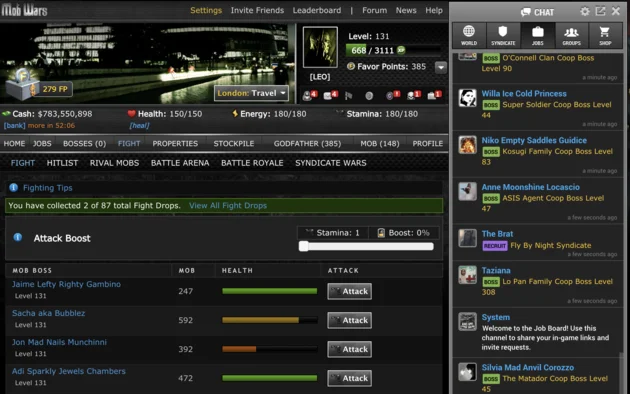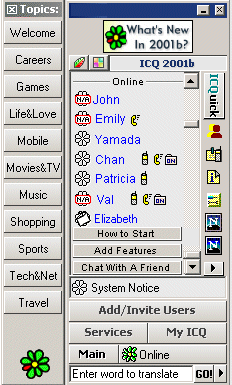The Interesting Story of Browser-based MMORPGs
The multiplayer browser games genre was born in the late 90s. At this time, the demand for singleplayer flash browser based games was already very evident. But people were interested in having the ability to play games with friends online in the comfort of their own home without having to go to an internet cafe (yes, that was a thing).
Back then, in the early 2000s, it was quite difficult to play most of the downloadable games online. You needed a powerful PC and a fast internet connection. Since those two were very expensive acquisitions (most people had mediocre PC and 56kbps internet), playing multiplayer browser game was much more convenient and intriguing. There is no lag, it's free and you still get to play with your friends in real-time etc. Moreover, browser based games did not require players to download or install the software. Many of us thought, "What more could we want?".
Due to these reasons, there was an increasing demand for multiplayer browser games to play with friends.

(Image Credit: KanoPlay.com)
Another big advantage was the ability to chat with people and make new friends online.
Although Facebook did not exist yet, ICQ (an early messenger platform like MSN and AIM) was quite popular and it allowed people to chat through the web and connect with others online. However, the conversations with a stranger on ICQ were usually superficial compared to the browser game chats. It was difficult to know if you had anything in common with the other person. It was more like a game of asking questions than an actual conversation. On the contrary, it was very easy to have a meaningful conversation and make friends when playing games through in-game chat rooms.

(Image Credit: Reddit)
Since players were facing the same challenges and likely experiencing similar emotions during gameplay, there was a common ground to start conversations through in-game chats. These situations acted as a "bonding experience" allowing players to help each other and accomplish tasks or quests, thus creating deeper and more meaningful connections online.
To add on, it is more likely you will get along with people on a personal level when you are playing the same game. Regardless of how you got there and why you started playing, it proves that there is some basis of having similar interests, where a simple conversation can expand into an online friendship or bond.
What is the "best free" browser MMORPG game?
Searching for perfection is a never-ending journey (some may say impossible and not worthwhile). But the reality is, gaming is such a personal experience that there is no "perfect game" for everyone. Everyone has different tastes, likes different genres, has a preference on platform, art styles, and the list goes on. All of these pieces play a part in deciding what your "perfect game" is and it is very likely that your "perfect game" now will not be your "perfect game" in 10 years from now (if it is, then your game developers are certainly doing something right).
To put this into perspective, let's look at a simple example. You cannot put everything in a dish and expect it to taste perfect, right? For instance, there are a few things that would go well with pasta, but you could not take everything in your fridge or cupboard, throw it in there and expect it to be a Michelin star meal. The same thing applies to the gaming industry.
When we create our games, we take LOTS of time to plan it and go through every scenario a player might encounter. It isn't just about putting a bunch of things into a game and expecting people to think it's fun. It's about designing a new "virtual world" that has its own economy, social interactions, accomplishments and challenges that all make sense and fit together.
We currently live in a world where "game factories" exist, where they are able to pump out new games at lightning speed with minimal thought behind it, in hopes that they'll hit it big on the next viral game. Although this may work for some, we believe in developing high-quality social games that last and build meaningful connections.
Why do people still play browser MMORPG games?
For starters, it's retro, fast, free and convenient.
In the early 2000s, we were not looking for convenience. Convenience was a luxury. But one thing that never changed was the desire to have a game be fast, fun and free.
As we moved into the smartphone age, convenience became much more important. Mobile versions of many games were launched.
If you think about different industries, you can see that convenience has become more critical in the development of products and services. Think about Uber, or Amazon, if those companies don't provide convenience, then I don't know what does.

(Image Credit: Charles from Unsplash)
Let's go back to the gaming industry and take a look at Mob Wars: La Cosa Nostra. Launched as a browser based game in 2008, Mob Wars: LCN is a text-based MMORPG that has had millions of players worldwide.
With the growth of technology, more and more players wanted to be able to connect with their online friends and play while they were on the go. In learning this, we decided to launch a mobile app that allowed them to do just that. With constant updates, listening to player feedback and delivering on their needs, we were able to replicate the player experience on mobile as it would be on browser.
In a nutshell, that's why people still play certain browser MMORPG games like Mob Wars: LCN. They are able to get away from the real world and play with friends online anytime and anywhere.
Feeling nostalgic? Remember that mafia game on Facebook or Myspace? We are still here and kicking it. Play now for free!